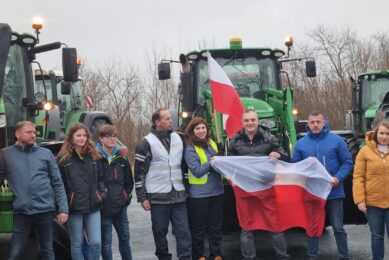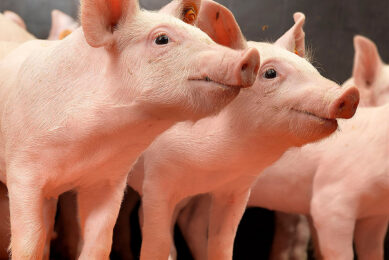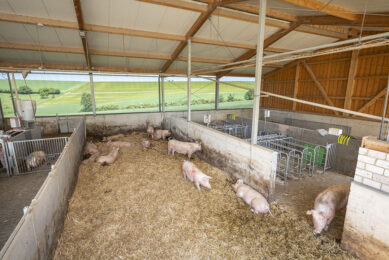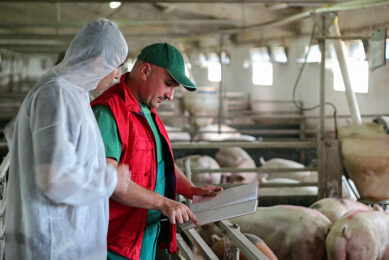Pigs and poultry are not susceptible for SARS-CoV-2

German research has shown that pigs and poultry are not susceptible for SARS-CoV-2, the causative agent for Coronavirus disease 2019 (Covid-19).
SARS-CoV-2, originally believed to have originated from bats, occurred in humans in China about 3 months ago, subsequently leading to a pandemic. But could SARS-CoV-2 also infect other animal species? With this question in mind, the German Federal Research Institute for Animal Health, the Friedrich-Loeffler-Institut (FLI), started infection studies in pigs, chickens, fruit bats and ferrets several weeks ago. The 1st results show that pigs and chickens are not susceptible to SARS-CoV-2 infection, whereas fruit bats and ferrets are.
Trials on pigs and chickens
Pigs and chickens were tested for susceptibility to SARS-CoV-2, as they are in close contact with humans. The FLI examined whether or not the animals got infected, the pathogen replicates and whether the animals showed symptoms of disease. It also tested if animals excrete the pathogen and thus pose a potential risk to human health. Under experimental conditions, neither pigs nor chickens were found to be susceptible to infection with SARS-CoV-2. According to the current state of knowledge, they are not affected by the virus and therefore do not pose a potential risk to human health. The complete evaluation of all test series will take some time; final results are expected at the beginning of May.
In the infection studies, the animals were inoculated nasally with SARS-CoV-2 to mimic the natural route of infection in humans via the nasopharyngeal route.

Covid-19 Up-date
What impact is the pandemic having on the global pig sector and how are they dealing with it.
Results of the trial on ferrets
The susceptibility of ferrets in particular is an important finding, as they could be used as model animals for human infection to test vaccines or drugs. Ferrets are a good model for humans for other respiratory infections, especially those caused by influenza viruses. Since SARS-CoV-2 mainly replicates in the respiratory tract, ferrets could also be a suitable model for this infection.
Animal model is sought after
Such an animal model reflecting human infection is currently sought after urgently worldwide. The virus is mainly replicated in the respiratory tract, but the animals showed no symptoms of disease. This provides an infection model that could be helpful in the testing of vaccines and drugs against SARS-CoV-2.

Interview: Transfer of Covid-19 to pigs is unlikely
Testing Egyptian fruit bats
The German scientists also tested Egyptian fruit bats, a megabat species, to gain knowledge about the suspected reservoir function of bats. These animals became infected, but did not show any symptoms of disease and did not infect their fellow animals efficiently.
 Beheer
Beheer








 WP Admin
WP Admin  Bewerk bericht
Bewerk bericht